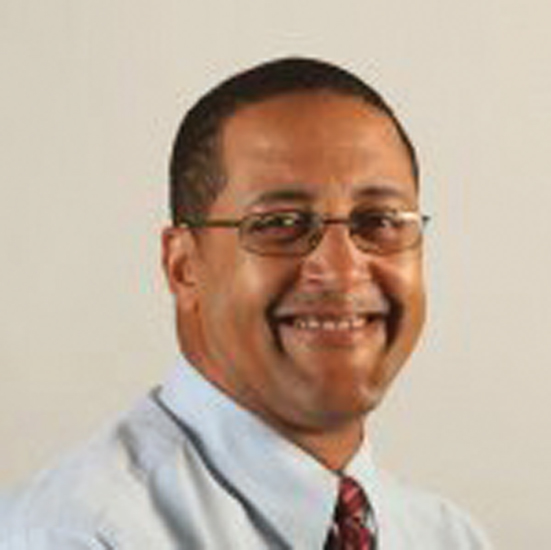Vaccines protect your children and others, too, by Roger Chesley
12/19/2024, 6 p.m.

Parents in Virginia who don’t vaccinate their young children, a percentage that’s grown over the past decade, are making a risky bet with their kids’ health – and maybe even their lives.
It’s a dangerous trend, perhaps attributable to the bleats of vaccine deniers who elevate misinformation, emotion and quackery over science.
Some adults may be unaware of past scourges where children frequently became ill before vaccines were available.

Many decades ago, polio sufferers had to depend on metal apparatuses called iron lungs just to help them breathe. Today, because of vaccines, polio is nearly eradicated worldwide, and iron lungs are primarily an eerie part of my youthful subconscious.
Vaccines work. More Americans should know that fact.
Refusal of vaccines during the COVID-19 pandemic, often along partisan lines, makes the current challenge tougher.
Axios Richmond recently noted the number of parents in Virginia now opting out of getting their children vaccinated.
It reported the percentage of kindergartners with vaccine exemptions has quadrupled over the past 10 years.
CDC statistics show 2.4%, or about 2,050 children out of 85,374 kindergartners in the Commonwealth, had either medical or nonmedical vaccine exemptions in the 2023-24 school year. In 2014, that figure was 0.6%. (Nonmedical exemptions often involve religious reasons, though I suspect parents often cite them merely to refuse the injections.)
Virginia’s rate of exemptions was still below the national average of 3.3%, Axios reported. Parents nationwide also overwhelmingly support childhood vaccinations, according to the Pew Research Center.
Those positive facts could be altered, however, because Robert F. Kennedy Jr. is set to lead the U.S. Department of Health and Human Services under President-elect Donald Trump. Kennedy is a prominent anti-vaxxer and has been criticized as a “denier of science.”
It’s another example of Trump using his picks to undermine the health and safety of everyday Americans, while at the same time awarding his sycophants.
Vaccine refusal disturbs epidemiologists like Carrie Dolan, an associate professor of kinesiology and public health at the College of William & Mary.
She said the benefits of vaccines far, far outweigh the risks.
“They’re effective,” Dolan told me. “They’re safe. They’re reliable.”
When people aren’t vaccinated, she added, the chance for an infected person to spread a contagious disease to someone else increases. Getting a little wonky – at least for me – Dolan explained something called an “R0,” or basic reproduction number.
Measles has an R0 of 12 to 18, meaning one infected person could spread it to up to 18 others in an unvaccinated population, she said.
“Before the vaccine, measles caused widespread outbreaks, often leading to complications like pneumonia and, in rare cases, brain swelling,” Dolan said by email. “Thanks to vaccination programs, measles cases have been drastically reduced worldwide. However, when vaccination rates drop, outbreaks can quickly return.”
Whooping cough, or pertussis, has an R0 of 12–17 and is especially dangerous for infants, who can have severe coughing fits that make breathing difficult. “Vaccination has greatly reduced the risk,” she said, but without it, “this disease could spread more easily, putting vulnerable groups like babies and the elderly at greater risk.”
Vaccinations also help protect children who, paradoxically, can’t take them.
Dr. John Harrington, a general pediatrician at Children’s Hospital of The King’s Daughters in Norfolk, told me that young oncology patients chronically on steroids are “unlikely to mount a response” to certain vaccines. In those instances, vaccines could be harmful.
“The assumption is if everybody else is vaccinated, that protects” children with serious health problems, Harrington said. (This is also another way to define herd immunity.)
Vaccine-hesitant parents tend to have heard or seen things on the internet or social media that influence their thinking, he said. Many, though, are willing to listen to their pediatricians or primary care physicians about the issue.
Besides, vaccines are overwhelmingly safe and effective, even if the total risk can’t be ruled out. Children are more likely to be protected, though, from diseases than if they hadn’t gotten the shots, Harrington said.
Erica Hunter, immunization data and outreach manager in the Virginia Department of Health, told me the recent trends on refusing vaccines for young children “certainly raise concerns.”
“Most Virginians do vaccinate their children,” Hunter said, adding she had no information on what role vaccine denialism might have in contributing to the statistics. “We just try to provide the best and most accurate information we can.”
She noted the state’s Vaccines for Children program provides free immunizations and has done so for decades.
“These viruses have not gone anywhere,” Hunter said. “They can resurface when vaccination rates decline.”
Non-COVID outbreaks have occurred in Virginia from time to time. For example, since June 2022, 41 confirmed cases of meningococcal disease associated with an outbreak of a specific bacterium have occurred. It killed eight people of all ages.
Nationwide, 283 measles cases were reported this year through Dec. 5, the U.S. Centers for Disease Control and Prevention reported. Virginia had one reported case. Some 89% of the total cases were listed as unvaccinated or unknown.
Not vaccinating children exasperates Dolan, the Willam & Mary epidemiologist. She helps run an immunization project in Kenya, and this summer, she had just 14 vaccines to fight HPV. Some 300 girls sought the precious supply.
In America, she said, we forget how lucky we are to have access to vaccines. “It’s been weaponized politically,” Dolan noted.
Please vaccinate your children. Your actions will protect them and may help others, too.
This commentary originally appeared on VirginiaMercury.com






